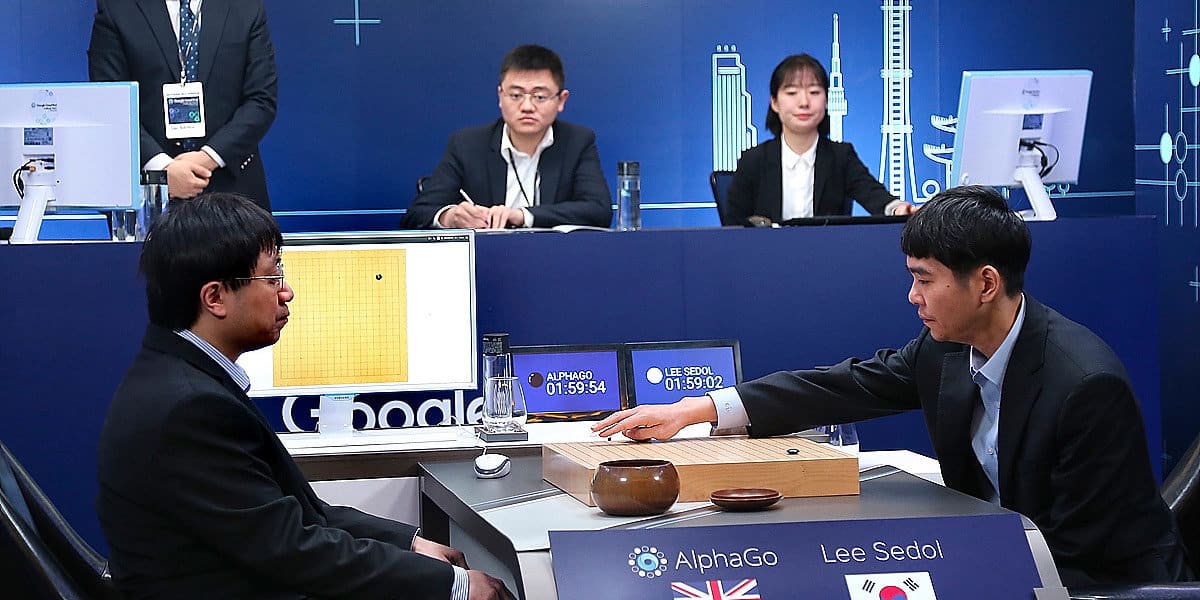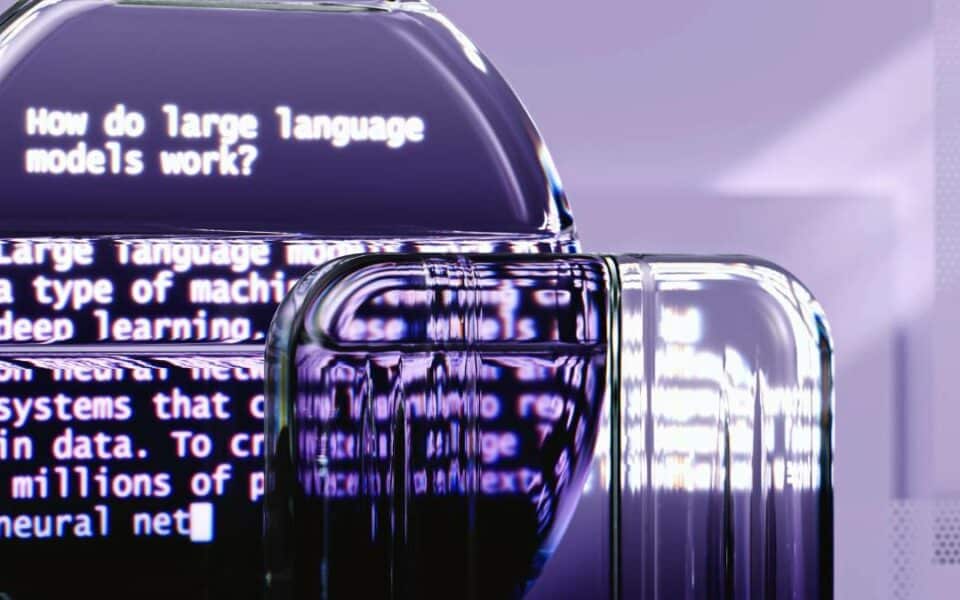
Anchor Text in a nutshell
3 August 2018
Changes in August update of the Google algorithm
15 August 2018
The victory of the Deepmind artificial intelligence in the game of Go over the multiple champion Lee Se-dol was a huge event in the history of artificial intelligence. It also allowed the creators of AI to check the possibilities of their invention and the amazing advertising around the world. Was this a milestone for AI? Google continues this path and develops its technology.
What is Go?
Go is a very popular game in Asian countries. It is an abstract board game invented almost 3 thousand years ago. This strategy game takes place on a board with dimensions of 19×19 squares. Players in turn place black and white pieces to circle the points on the grid and conquer the opponent’s territory. Although the set of rules is very small, it creates a challenge of unusual depth and nuances. Thanks to the intricacy of Go, human players become experts over years of practice, perfecting their intuition and learning to recognize patterns of the game. It is played mainly thanks to intuition, and thanks to its beauty, subtlety and intellectual depth, it has captivated the human imagination for centuries.
Why Go and not chess?
Go is considered to be incomparably more difficult than chess and other strategic games. There is more intuition in it than in chess, and it is harder to learn different variants of the game. As you know, games are hard to compare, but when it comes to the difficulty for AI, playing Go is at a higher level.
Just to remind you, the AI pioneer – DeepBlue won with Chess Grandmaster Kasparov in the 1990s. It was a great feat in those days. However, DeepBlue acted on a different basis than today’s artificial intelligence. It has been programmed to search thousands of chess games and evaluate the best movement it has. Everyone knew that his only goal is to play chess, and his programming cannot be used for many other elements. However, AlphaGo used the idea of computing power and added human reasoning or intuition – this combination makes it ideal for countless purposes.
AlphaGo learning process
The complexity of Go means that it has long been seen as the most challenging classic game for artificial intelligence. Despite decades of work, Go’s strongest computer programs have been able to play only at the level of human amateurs. Traditional AI methods that build search trees in all possible positions have no chance in Go. This is due to a large number of possible moves and difficulties in assessing the strength of each possible position of the board.
To capture the intuitive aspect of the game, the developers have adopted a novel approach. AlphaGo combines advanced tree search with deep neural networks. These neural networks describe the Go card as input and process it through a number of different network layers containing millions of neuron-like connections. One neural network, the “rules network”, selects the next game move. The second neural network, the ‘value network’, predicts the winner of the game.
People at Google showed AlphaGo a large number of strong amateur games that helped it develop its own knowledge of how a human game looks. Then they played against different versions of themselves thousands of times, each time learning from mistakes and gradually improving, until AlpaGO became extremely powerful, through a process known as reinforced teaching.
AlphaGo vs Mistrzowie Go
The first official AlphaGo match was against the current three-time European champion, Mr Fan Hui, in October 2015. The 5: 0 artificial intelligence victory was the first ever fight against the Go Pro, and the results were published in full technical information in international journals. AlphaGo then competed with the legendary player Lee Se-dol, the winner of 18 world series. Lee Se-dol is considered one of the best players in history and considered a great genius in the world of Go. For many years no one has won even one party with him.
AlphaGo 4-1 victory in Seoul, South Korea, in March 2016 saw vver 200 million people around the world. It was a breakthrough for artificial intelligence and a shock for the whole world playing Go. During games, AlphaGo played in a highly ingenious way, and some of the moves were so surprising that they turned over hundreds of years of wisdom to him that since then they have been widely studied by players at all levels. During winning AlphaGo somehow taught the world a whole new knowledge about probably the most studied and contemplated game in history.
AlphaGo Zero – removing human knowledge from the program
A Google subunit dealing with artificial intelligence or Deepmind soon after the famous games presented a newer version of the software – AlphaGo Zero. Unlike previous versions of the AlphaGo game, which learned to play the game using thousands of human amateur and professional games, AlphaGo Zero learned to play Go simply by playing games against each other, starting with a completely random game. The new program is a much better player than the version that beat the world champion at the beginning of this year, but more importantly, it is also a complete self-taught.
According to Deepmind, this means that the company is a step closer to creating general-purpose algorithms that can intelligently solve some of the most difficult problems in science, from designing new drugs to more accurate modelling of the effects of climate change.
Meaning for the real world
According to some specialists, this is a purely academic achievement irrelevant to the business world. They believe that it is more important to communicate freely on the AI – human line. Despite its complexity, Go, like all board games, is relatively easy to understand by computers. The rules are over, there is no luck, no hidden information, and most importantly – scientists have access to a perfect game simulation. This means that artificial intelligence can run millions of tests and be sure that nothing is missing. Finding other fields that meet these criteria limits the use of Zero intelligence. DeepMind did not create a magic thinking machine.
But the basic technologies behind AlphaGo are certainly important for a variety of industries such as E-commerce. The key to success is not to memorize a specific sequence of movements, but to recognize patterns and generalize previous experiences.
The ways of applying revolutionary progress in machine learning – in the ability of machines to imitate human creativity and intuition – are virtually unlimited. We have to be patient and wait for what will bring us solutions used in AlphaGo.


